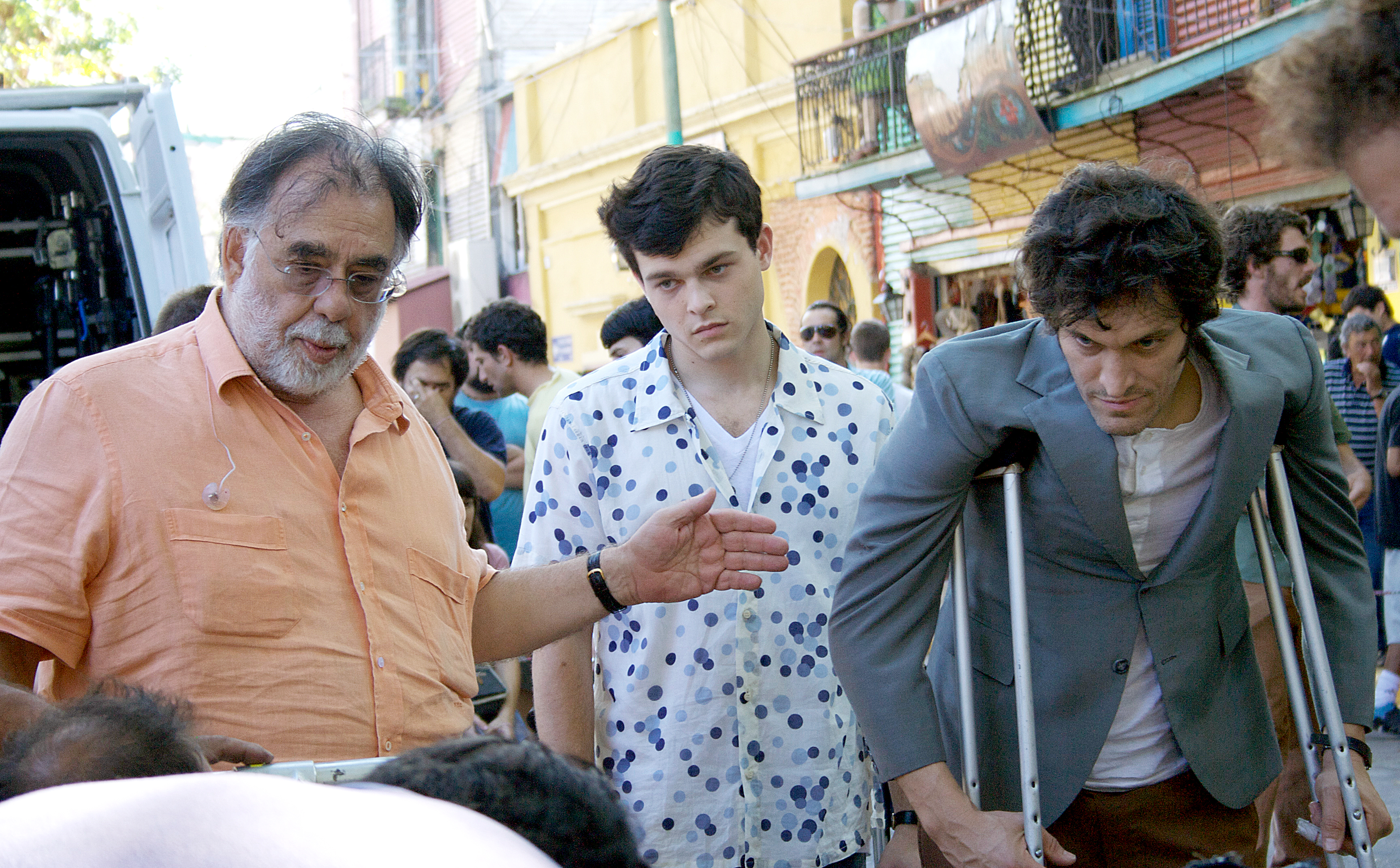Filmmaker Francis Ford Coppola is a man of many titles: a legendary filmmaker with a master’s degree, a Bruin, and, according to him, a has-been.
“I’m not trying to have a movie career; I do not have a movie career,” said Coppola, who graduated from the UCLA School of Theater, Film and Television in 1967. “As to my importance now, am I, perhaps, a has-been? For sure I’m a has-been. But I “˜has been’ in something that was very exciting at the time, but I don’t want that anymore.”
The eight-time Academy Award nominee and three-time winner said he is a has-been, and he is fine with that because it means he gets to finally make the movies he wants to make, such as his latest venture, “Tetro.”
“Tetro” is the second film Coppola has directed in the past decade. It centers on the story of 17-year-old Bennie (Alden Ehrenreich), who runs away from home to reunite with his older brother Tetro (Vincent Gallo) in Argentina after more than 10 years of separation, and the volatile relationship that ensues. While Coppola insists it’s a fictional tale, he recognizes the similarities to his own life.
Coppola, like Bennie, comes from a family of artists ““ his older brother grew up to be a professor of comparative literature. Like Bennie, who runs away from home, Coppola ran away from military school.
“Tetro” opened with limited distribution and mixed reviews on June 11 and was independently made and financed by Coppola. He said he didn’t make it with the intent of getting a paycheck, but to make the film he’s always wanted to. Coppola, who turned 70 in April, can finally rest easy.
“Film directors always have a lot of anxiety that they’re never going to get to make the movie they want to make,” Coppola said. “Even the big ones.”
So he made a personal film. He produced, directed and most importantly wrote “Tetro” ““ a process that gave as much as it took from him.
“When you write, you don’t know what you’re getting into and you don’t know what the answers are,” Coppola said. “So if you make a personal film, one of the benefits is you’re going to learn a lot about what your subject is.
“I have had fame, and I have had wealth, and I have had failure, and I have had wealth again,” Coppola said. “I’ve had all these wonderful privileges, but the real happiness in life is to learn something.”
In his endeavor to learn, Coppola is embracing his self-imposed Hollywood outcast status and embarking on what he calls a “second career” that includes making more personal types of films and even learning how to make movies. Coppola, the man about whom film classes are taught, wants to learn how to make movies.
“Although I’ve been doing it for 40 or 50 years, I know that much of what you could know, because the cinema is young and we haven’t even begun to touch that language that could be invented,” Coppola said.
Though he said he believes he is a student of film himself, he continues to be a driving force in the education of other filmmakers as well. Coppola attended UCLA when it “was a tiny stage and a handful of faculty,” and he has not forgotten his alma mater.
More than 10 years ago, Coppola suggested there be more integration of the theater and film students, and in the fall of 1997, the Francis Ford Coppola One-Act Marathon was created.
Every spring, directing students from the film school team up with playwrights and actors from the theater school to put on what the department nicknamed “The Coppolas.”
Coppola was an undergraduate theater student, and he stresses the importance of film and theater students working together.
Edit Villarreal, the chair of the master of fine arts in playwriting program at the School of Theater, Film and Television, agreed.
“(Coppola) said the best thing for young film-directing students is to direct a play because you have to direct it in true time. … You don’t film it in scenes, you have to present an entire experience to an audience,” Villarreal said.
Coppola’s advice for future filmmakers perhaps stems from his concern with current cinema. Unhappy with the “dumbed-down” feeling of today’s movies, Coppola said he’s making movies for the people who might appreciate it a little more and no longer worries about making “films that will reach 4,000 screens throughout the country.”
Though this vibrant septuagenarian doesn’t appear to be losing sleep over what critics say about him, Coppola has at least one fan ““ though he may be a little biased.
“It’s really fantastic to be able to work with somebody you trust so much because you know how brilliant they are,” Ehrenreich said.
Maybe Coppola considers himself a has-been, but even he has to admit that he can offer at least one piece of advice that’s still relevant.
“If you quit trying to do more than your ability is, then you’re going to lose discovering by luck something everyone can enjoy.”
